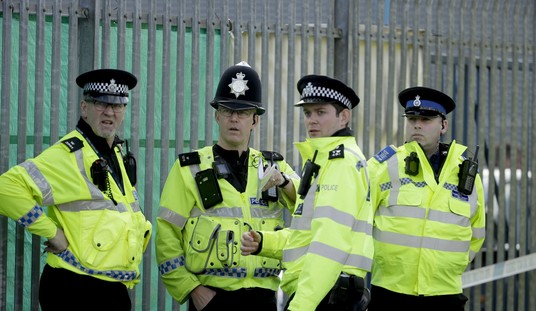Well, these days it’s the weather. After yesterday’s “unexpectedly” poor report on the economy, the Washington Post says that the hope (and change) in the Beltway is that they can claim it the result of a harsh winter. Of course, that might conflict with the parallel message of the past year being the hottest on record, so …. good luck with that:
The U.S. economy slowed nearly to a halt in the first three months of the year as exports plunged, oil companies slashed business and a rotten winter helped keep consumers indoors.
The economic slowdown, reflected in government data released Wednesday, was sharper than analysts had anticipated and creates a puzzle for employers and policymakers, who are trying to determine whether the annualized 0.2 percent growth between January and March is attributable to temporary factors or is a signal of broader problems.
Sorting out an answer will take at least several more months, but it leaves greater uncertainty about an economy that had until recently been among the world’s best performers. The United States faces challenges not only from a strong dollar, a drag on growth, but also from an oil price decline that has stunted one of the nation’s most bustling industries.
Except that the winter wasn’t really all that rotten. The previous two winters were tougher, while this one ended up on the milder side of the past decade or so. The repetitive excuses for the first quarter are wearing pretty thin, and so are the excuses for a consistently stagnant economy that hasn’t produced an annual GDP above 2.5%, and last hit that mark in 2010.
Why does the White House, and by extension Democrats, want to blame the weather? The 2016 election season has begun, and an uncomfortable parallel to 1992 has begun to take shape, as I note in my column for The Fiscal Times today:
That puts Democrats in a similar situation as Republicans faced, ironically when Bill Clinton began pondering a run for the White House. In early 1991, then-popular incumbent George H. W. Bush had to deal with a relatively mild recession that started in the fourth quarter of 1990, one that followed years of uninterrupted expansion from the Reagan era. Bush had just defeated Saddam Hussein and had worked out a bipartisan budget compromise that angered the conservative base of the Republican Party, but won him plaudits from the media.
The recession would be brief; the next three quarters showed moderate growth, ramping up to three straight quarters of GDP growth at 3.9 percent or above in 1992. Annual GDP growth in 1992 would hit 3.6 percent, far above any of the years in the Obama recovery, the peak of which came in 2010 (2.5 percent GDP growth).
Yet, the Clintons were able to beat Bush in 1992 by largely attacking the incumbent on economic confidence, as well as the sense that the nation needed a new direction. Bill Clinton had a long history of success as governor in Arkansas, and his youth and vitality spoke to the mass of Baby Boomers who wanted to see their generation take over from their World War II-era leaders. With help from H. Ross Perot’s independent bid, the Clintons celebrated on Election Night with their campaign theme, Fleetwood Mac’s, “Don’t Stop Thinking About Tomorrow.” …
That makes Democrats especially dependent on not just the reality of a strong economy, but the perception of economic strength as well. By the time of the general election in 1992, GDP growth had rebounded, but the perception left from the previous year of stagnation and pessimism remained. It created the sense that the nation needed a new direction, even though the expansion begun in the early 1980s had actually only taken a pause.
That is the core of the problem for Clinton and the Democrats in 2016. The Obama recovery has never produced that kind of sustained expansion above stagnation levels. The ranks of chronically unemployed remain high, job creation has remained tepid, and the workforce participation remains at or near lows last seen in the Jimmy Carter administration. The political window for sustained growth and electoral success for Democrats is rapidly closing, and their only serious candidate represents continuity not just to stagnation, but also carries lots of other baggage regarding crony connections to the very people and institutions voters tend to blame in poor economies.
Granted, the media pounded Bush 41 over the state of the economy all through 1992, even though it had recovered far better than anything under Democratic economic policies have produced over the last six years. Hillary Clinton, or whomever the Democrats nominate, will not likely have the same kind of political headwinds as a result, but the sense of malaise is still palpable. No matter whom they nominate, Democrats will essentially have to argue for continuity, if not doubling down, on those policies. They’ve run out of time to demonstrate real and lasting economic momentum, it’s going to be a very big problem in very short order.








Join the conversation as a VIP Member